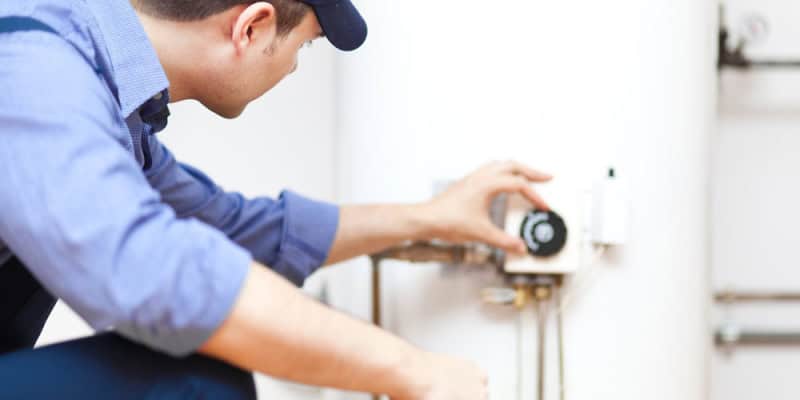Did you know that water heating is the 2nd largest contributor to your utility bills? The type of water heater you have can greatly impact your utility costs. Understanding the different types of water heaters and how they operate can save you money when building or remodeling your dream home. While there are several different options to how you heat your water, I want to outline a few key things you need to keep in mind while making your decision. Described below are the three primary water heating categories.
Tank Water Heaters
Tank Water Heaters are the most common types of water heaters in the market. Tank water heaters use a fuel source (either electricity or gas) to generate heat and apply that heat directly to the water. This is the most basic form of water heating. The water is stored in a tank (typically 40-80 gallons) until demand of hot water is needed. Built-in thermostats, in the tank, tell the heater when it needs to come to achieve the set point temperature. Tank water heaters are desirable due to their inexpensive installation costs and industry acceptance. They are typically the “standard” that a builder uses in construction.
Tankless
Tankless Water Heaters hit the scene in the U.S. about 12 years ago. They are growing in popularity all across the country. However, there are some myths that need to be addressed about tankless water heaters. Tankless water heaters don’t use a tank for storage, hence the name “tankless”. Instead of maintaining a temperature in a tank until it is needed, tankless water heaters only heat the water only when hot water is needed. Because of this, tankless water heaters use 5-6 times more energy when they are in use, compares to standard tank heaters. They are however less costly to operate than their tank counterparts by 7-25%. The industry calls them “instantaneous” water heaters, that suggests that you get your hot water instantly. The truth is that the water still has to flow down your pipes to your point of use. The term instantaneous comes from there being no tank and heating the water as needed. These types of heaters can offer continuous flow if the heaters capacity is not exceeded.
Heat Pump Water Heater
Heat Pump Water Heaters are unique in that they don’t burn a fuel source to create heat. Heat pumps do exactly what the name implies; they pump heat. Both standard tanks and tankless heaters create heat and apply that heat to the water. Heat pumps use a simple refrigerant cycle to extract heat from the air and introduce it into the water. Because no heat is being created, heat pumps are 3-4 times more efficient than both standard tanks and tankless water heaters. Heat Pumps are 100% electric and cost up to 70% less to operate than other gas or electric options. Heat pump water heaters use storage tanks like standard tank water heaters. With operating costs like this, you would think that heat pump water heaters would cost a fortune. The truth is, installation costs of heat pump water heaters are nearly 50% less than a tankless gas installation.
Water Heater Cost Comparison
To me, the choice is easy. Heat pump water heaters offer the best return on investment by a good margin. The technology comes with a 10-year warranty that exceeds other warranties from the standard tank and tankless manufacturer. With a properly sized heat pump water heater, you will experience any benefit other technologies offer while doing so with envious heating costs. Heat your water with the best, heat with heat pump technology!


